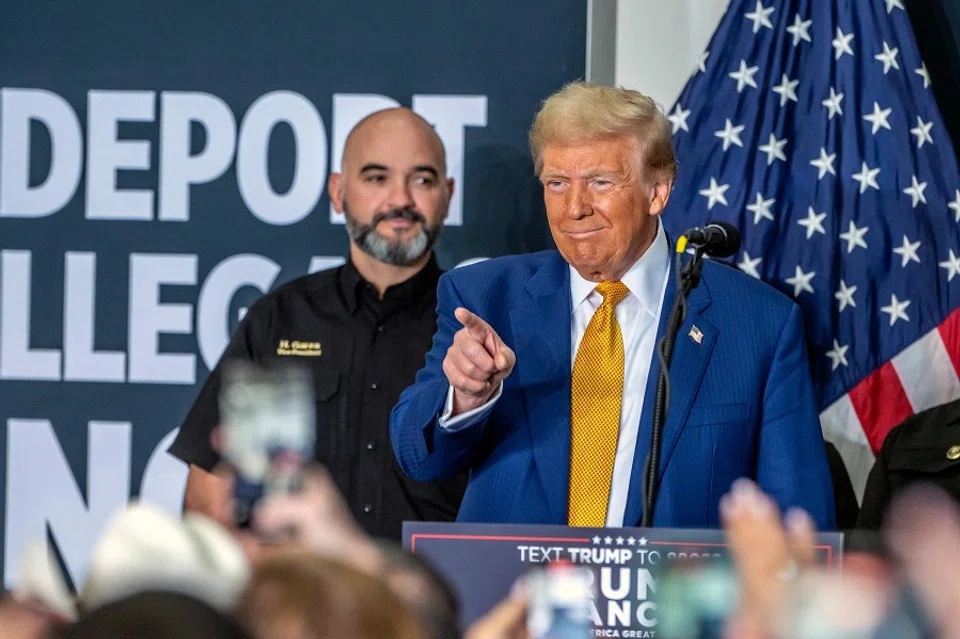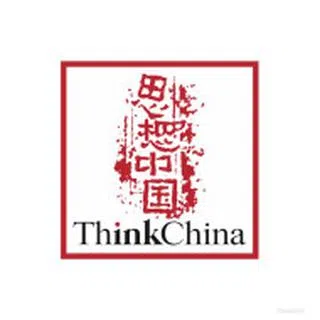Trump’s impact: A world transformed?
Commentator Ye Shengzhou analyses the potential ramifications of Donald Trump’s return to the White House, including the impact on US court decisions regarding his criminal cases, US foreign policy and the media landscape.

Since mid-October, numerous US polls have shown growing support for Donald Trump over Kamala Harris, both nationally and in key swing states. However, the 2016 and 2020 elections demonstrated that polls can be misleading due to factors like undisclosed voting intentions among far-right Republican voters, media bias against Trump and the electoral college system favouring the Republican Party. A clear Democratic lead beyond the margin of error is often crucial for victory.
With Trump now poised to return to the White House, at least seven key changes are anticipated.
If he is convicted and sentenced, would the White House effectively function as a prison, or would adjustments be made to accommodate his presidency?
Criminal and civil cases
One, sentencing. Trump, known for his controversial business practices, is facing four criminal indictments. In the “hush money” case, the jury found him guilty on 30 May, but sentencing was postponed to 26 November. The verdicts for the other three cases have also been delayed. Although there is some biased protection from the Supreme Court in his favour, the primary reason remains to avoid interfering with the presidential election. While Trump’s potential embarrassment might be a minor issue, the implications for national dignity are significant.
Now that Trump has emerged victorious, the US courts are in a difficult position. Would it delay sentencing and judgement for another four years? If he is convicted and sentenced, would the White House effectively function as a prison, or would adjustments be made to accommodate his presidency? Alternatively, would Trump issue a pardon for himself? Any of these moves would be unprecedented.
Tariffs and China
Two, tariffs. The perception of Trump’s first term as unpredictable is a misreading. His actions were often consistent and predictable when viewed through the lens of his personal interests, rather than broader American interests.
Politicians frequently make empty promises, but among the recent US presidents over the past decade or so, Trump has been unusually committed to fulfilling his campaign pledges. For example, he delayed imposing tariffs on China due to the North Korean nuclear issue, but initiated a trade war in April 2018 once US-North Korea relations eased and China’s assistance was deemed less crucial.
Trump’s focus on tariffs ignores the reality that they effectively tax the imposing country, burdening its citizens. Current US inflation is not entirely the fault of the Biden administration; it is also related to the high tariffs from the Trump administration.
... a more aggressive Trump and assertive US might paradoxically benefit China and the Communist Party of China (CCP) by encouraging pragmatism and a more focused approach.
During his campaign, Trump repeatedly threatened to impose tariffs of 60% to 100% on Chinese products and 10% to 20% on products from other countries. An increase in tariffs seems inevitable. However, a more aggressive Trump and assertive US might paradoxically benefit China and the Communist Party of China (CCP) by encouraging pragmatism and a more focused approach. Ultimately, achieving a balance of interests and strong joint governance by China and the US would be a boon for the world.

Allies and adversaries
Three, isolation. After taking office, Biden was quick to patch up relations with allies, and rejoined international treaties and organisations that Trump had exited. Trump’s return would necessarily mean populism and isolationism will rise again, and relations with allies will inevitably become more tense. On 29 October, during a campaign rally in Pennsylvania, Trump threatened that the EU would “pay a big price” after his victory if it did not purchase enough American exports.
US allies do not want Trump to return. Countries like Japan, South Korea, Germany as well as NATO and the EU would have another headache, in anticipation that Trump might raise the cost of military protection, frequently use tariffs to exert extreme pressure for concessions and ignore issues like climate change and environmental protection, which would go against the EU’s policy direction.
Meanwhile, adversaries of the US including Putin, Kim Jong-un and Ali Khamenei may look forward to Trump’s return because of his actions. While seemingly aggressive, they often yield limited results while inflicting significant collateral damage on both the US and its allies.
Targets and retributions
Four, retribution. Trump has already named both former Democratic House Speaker Nancy Pelosi and the House Permanent Select Committee on Intelligence chairman Adam Schiff as “an enemy from within (the US)”, further exacerbating the divide between the two parties and within American society.
The scandal of the Little Saint James island — which once belonged to convicted sex offender Jeffrey Epstein — and the guests who visited it is shrouded in mystery, with many Democratic leaders and donors dragged in. Trump had long threatened to reveal the guest list if he won, leaving many to wonder if figures like Barack Obama, Bill Clinton and Bill Gates have dark sides yet to be exposed.
Like Trump, Biden’s second son, Hunter Biden, is highly controversial. He will be sentenced in December for his gun and tax-related charges. He has already lost his father’s protection and faces further investigations into other alleged offences. Trump has hinted at pardoning Hunter if elected, but this is not out of kindness — it implies the premise of Hunter’s conviction and imprisonment, essentially confirming his public disgrace.
When Trump returns to the White House, he is expected to fulfil his repeated promises to quickly end the Russia-Ukraine war, reject Zelenkyy’s demanding “victory plan” and force Ukraine and the EU to accept an unequal peace treaty.

Stopping the wars
Five, ceasefire. While Trump has been seen as notably pro-Russia, any suggestion of Russia possessing compromising information on him does not necessarily imply treason. Otherwise, if the Democrats were behind in the polls, Harris’s campaign team would have used their control of the Justice Department to release a decisive blow in the week leading up to election day. At the same time, US intelligence agencies and overwhelmingly pro-Democrat media outlets would also cooperate to reveal damaging information and destroy him.
Ukrainian President Volodymyr Zelenskyy is worried about Trump’s return to the White House because Trump had asked him to investigate Hunter’s illegal economic activities in Ukraine during his presidency, but Zelenskyy had refused.
When Trump returns to the White House, he is expected to fulfil his repeated promises to quickly end the Russia-Ukraine war, reject Zelenkyy’s demanding “victory plan” and force Ukraine and the EU to accept an unequal peace treaty. Biden opposes inviting Ukraine to join NATO, and Trump is even less likely to do so.
As for the war in the Middle East, Israeli Prime Minister Benjamin Netanyahu, who is closer to Trump, has likely inflicted sufficient damage and will accelerate ceasefire negotiations.
Trump asserted that he would impose additional tariffs of 150% to 200% on China if it were to attack Taiwan.
Less committed towards Taiwan?
Six, Taiwan. On 23 October, John Bolton, the former national security adviser to Trump, told BBC that if Trump wins a second term, he would be “very worried” for Taiwan and that “Taiwan is potentially toast”. During Biden’s presidency, when responding to media questions on Taiwan, he claimed at least four times that US troops will defend Taiwan. Each time, the White House would rush to put out the fire and reaffirm that the US policy toward Taiwan remains unchanged. On 18 October, Trump asserted that he would impose additional tariffs of 150% to 200% on China if it were to attack Taiwan.

The contrast between the two is stark — Trump does not intend to send troops to defend Taiwan and is unwilling to even take such a deterrent stance. Accusing Taiwan of “stealing” the US’s chip industry, forcing Taiwan to buy more expensive arms, and indirectly increasing protection fees to generate more profit for the US military-industrial complex is just a basic tactic for Trump’s return to the White House.
The next major highlight of the China-US-Taiwan relationship is when and how Taiwan President Lai Ching-te will transit through the US on his way to visit Taiwan’s diplomatic allies in Latin America in 2025. The original plan was for October this year, but the Biden administration declined to host him out of concern for the impact on the election.
Conventionally, mainland China would then conduct its “Joint Sword” military exercises. The question is whether the country would use this as a pretext to send drones near Taiwan’s territorial space of 12 nautical miles, further squeezing Taiwan’s strategic depth and establishing normalised patrols.
On 25 September, China successfully launched an intercontinental ballistic missile (ICBM) into the Pacific for the first time in 44 years. The strategic purpose was to demonstrate nuclear deterrence against the US to warn them against taking rash actions. The tactical purpose was to send a traditional message to the next US president that both sides can compete without having relations spiral out of control, essentially sharing the risk of a potential Trump return to the White House and a continued escalation of China-US rivalry.
The Washington Post published an article announcing its abandonment of its 48-year-long support for the Democratic Party and return to neutrality, despite the cancellation of subscriptions by hundreds of thousands of readers and resignations from editors and columnists in protest.

Exciting times for world media
Seven, the media. In the final sprint of the elections, The New York Times continued its anti-Trump stance and published a commentary by economist Paul Krugman on 28 October, attacking that Trump has “always been a con man”. On 25 October, The Washington Post published an article announcing its abandonment of its 48-year-long support for the Democratic Party and return to neutrality, despite the cancellation of subscriptions by hundreds of thousands of readers and resignations from editors and columnists in protest.
After Trump lost the 2020 election, both the right-wing Fox and the left-wing CNN saw a noticeable decline in their viewership. Now that he has been returned to the White House, there will inevitably be new developments every day — big stories every three days and major revelations every five days. A full-time reporter would not have the energy to keep up, while fresh articles would need to be revised or even completely rewritten, as long as they have not yet been used. A new spring has dawned for the world’s media!
This article was first published in Lianhe Zaobao as “特朗普“回炉”带来七个变化”.



![[Photos] Fact versus fiction: The portrayal of WWII anti-Japanese martyrs in Taiwan](https://cassette.sphdigital.com.sg/image/thinkchina/3494f8bd481870f7c65b881fd21a3fd733f573f23232376e39c532a2c7593cbc)

